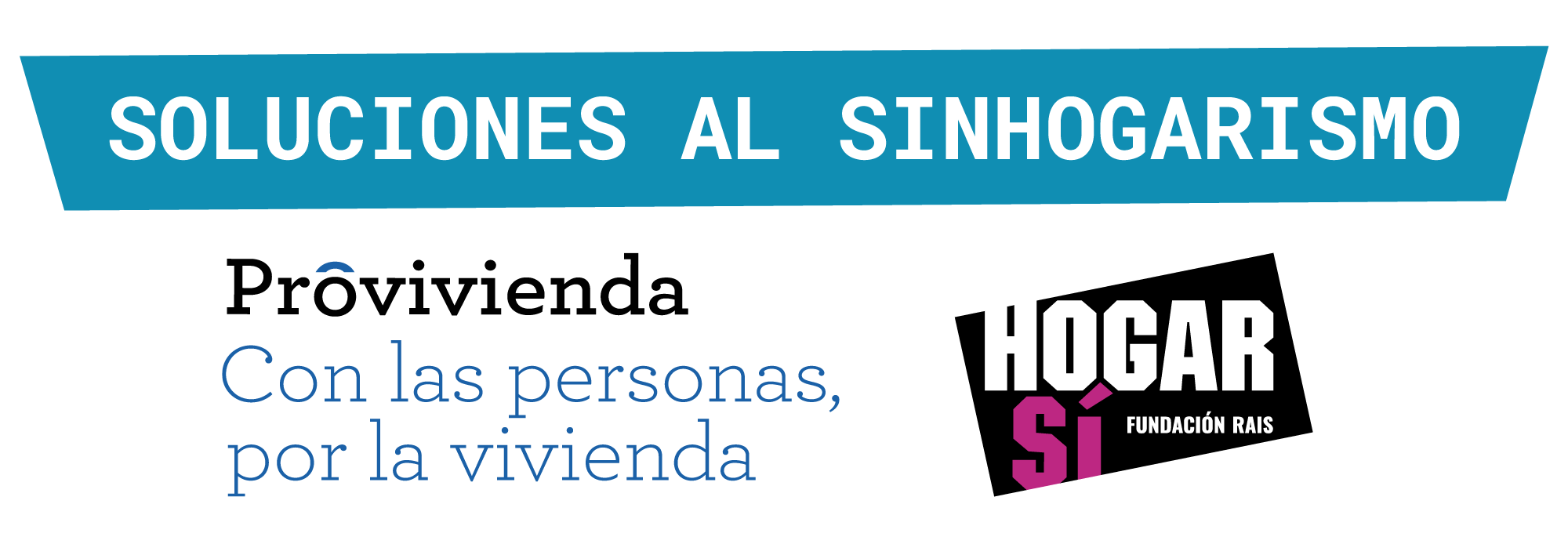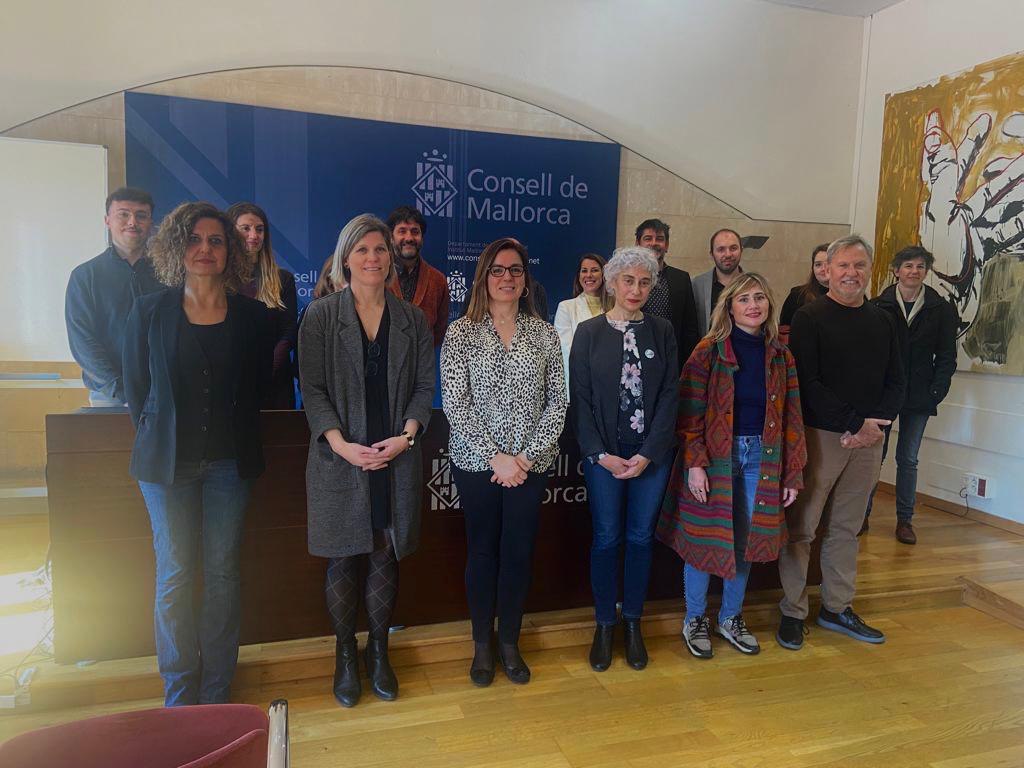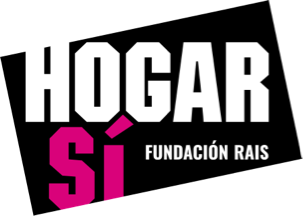- Both administrations have met in Mallorca with HOGAR SÍ and Provivienda, entities that develop, with the collaboration of IMAS, the innovation projects Derechos a la vivienda and H4Y FUTURO.
- The innovation projects, which will accommodate 190 people in Mallorca, have the fundamental objective of transforming the network of care for homelessness in the Balearic Islands, providing solutions tailored to each person for the safe and chosen transition to a life in community.
- 60 homeless people in Mallorca are already participating in the innovation projects and are in the process of regaining their autonomy.
HOGAR SÍ and Provivienda, thanks to funding from the Next Generation EU funds of the Plan for Recovery, Transformation and Resilience of the Ministry of Social Rights and Agenda 2030, are developing the following innovation projects Housing Rights y H4Y FUTURE. Both are aimed at implementing a model of accompaniment that promotes the deinstitutionalization processes of people in a situation of homelessness. With these projects, and thanks to the participation of the Insular Direction of Social Inclusion of IMAS, we seek a transformation of public policies for the care of homeless people during the next 2 years in Mallorca.
The Councilor for Social Rights and President of the Mallorcan Institute of Social Affairs (IMAS), Sofia Alonso, met this morning in the IMAS conference room with the Director General of Family Diversity and Social Services of the Ministry of Social Rights and Agenda 2030, Patricia Bezunartea . The meeting addressed the progress in the implementation of the innovation projects Housing Rights and H4Y FUTURE.
The meeting was also attended by the second vice-president of the Majorcan Institute of Social Affairs (IMAS), Magdalena Gelabert, the Insular director of Social Inclusion, Guillermo Montero, and the general directors of the entities, José Manuel Caballol, general director of HOGAR SÍ and Gema Gallardo, general director of Provivienda.
The meeting focused on innovative housing-based solutions to homelessness in Mallorca, specifically the Housing Rights and H4Y FUTURE projects. The two programs aim to fundamentally change the approach to homelessness, adapting to each person for a safe and chosen transition to community living. In the first phase, 60 people have been incorporated and are already receiving the support they need to move towards an autonomous life.
Deinstitutionalization policies
The Housing Rights program seeks to promote the development of deinstitutionalization policies, as well as the prevention of institutionalization. In other words, it seeks to promote changes in the traditional response system to the problem of homelessness: moving from care in large centers and shelters to care in community housing.
For its part, H4Y FUTURO proposes to respond to the challenge posed by youth homelessness through the application of the Housing First for Youth methodology in our country. This project is based on the Housing model , which IMAS launched six years ago and which facilitates social insertion through access to housing.
IMAS currently has 80 places in the Housing First program and 60 in the Housing Led program, managed by HOGAR SÍ and Provivienda. These people will also benefit from the services of access to employment, direct transfers and support in the search for independent housing. In addition, it has promoted a specific one for the elderly, Oldies Housing, with 12 places, to avoid their admission in the centers of the inclusion network.
In Spain, in the last ten years, the number of people in a situation of homelessness has increased by almost 25%, according to the INE survey on Homeless People (2022). We estimate that there are more than 37,000 people in this situation, of which 535 go to assistance centers for homeless people in the Balearic Islands. With these projects it is intended that 1,289 people in Spain, 190 in the Balearic Islands, begin their own processes of autonomy and live in safe environments and in community.
These innovation projects are aligned with the Deinstitutionalization Strategy for a Good Life in Community, promoted by the Ministry of Social Rights and Agenda 2030, presented a few weeks ago, which reinforces the need to transform the care and assistance system, in this case for people in a situation of homelessness, offering care that is more respectful of people's autonomy.
According to Patricia Bezunartea, Director General of Family Diversity and Social Services: "The Ministry of Social Rights and Agenda 2030 has consistently promoted throughout the legislature an improvement in social investment and has encouraged opportunities to promote a change in the model of care, also in terms of our responses to homelessness. To this end, and through the Next Generation Funds, we have clearly prioritized investment in social policy, which is allowing us to finance innovative projects, such as the ones we are dealing with today, to experiment with methodologies that work and that can later become widespread public policies. In addition, we are developing a new National Strategy to combat homelessness, with a rights-based approach, taking into account the centrality of housing, and aiming to provide solutions that join wills to solve this problem in a structural way. Innovative projects such as those being developed by HOGAR SÍ and Provivienda, together with the Consell de Mallorca, should serve as an inspiration to improve people's lives and to transform our policies".
Sofia Alonso, Councilor for Social Rights and President of the Institute of Social Affairs of Majorca (IMAS) assures, "it is important that Europe has realized the need for change towards a model where housing is the priority element in the process of inclusion of people at risk or social exclusion, accompanied by the support of a technical team that designs an individualized itinerary based on the preferences and specific needs of each person. A methodology that we launched six years ago at IMAS with a resounding success, since in most cases that go through the programs achieve socio-labor reintegration and full autonomy".
José Manuel Caballol explains that "living in a house is what all people want, including those living on the street. Eighty-two percent of homeless people consider that housing is what they need to overcome their situation and only 1.2% consider that attending a center as an inmate is a necessary factor to overcome homelessness. These projects aim to demonstrate that working with each individual's will and choices in mind is the most effective because people know our needs and the best way to meet them. We also hope to demonstrate that projects based on standardized housing are more efficient because they move people away from emergency resources - always more expensive and segregating - and bring them closer to community resources - much more economical and normalizing".
"These projects are an opportunity to commit to a model of public policies that adapt to the needs of each person, promote their autonomy and care in the home. In short, they are committed to community living," concludes Gema Gallardo, general manager of Provivienda.
"Homelessness has to be eradicated. It is a situation that we have to address with courage and creativity. European funds are the opportunity to do this task and reaffirm this commitment. We have innovative programs and we have to know how to sustain them according to the needs of the citizens, we have to maintain them now, in the present, and we also have to be able to maintain them in the future. We have to know how to foresee their continuity", said the vice-president of IMAS, Magdalena Gelabert.






